




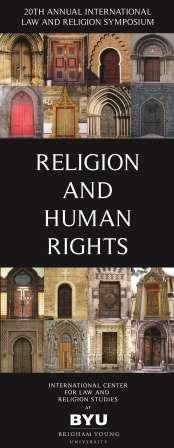
Reports of individual session of the 20th Annual International Law and Religion Symposium appear here as soon as they become available. Check back often! (If you have a report or useful photographs to share, please send them directly to Donlu Thayer at [email protected].)
A full table of texts, recordings, and photographs from the Symposium are being assembled here. Please note that the default is to show presentations available in English. Written texts are also available in French, Italian, Spanish, and Ukrainian. Note that languages available may be selected from the dropdown menu at the top right of the page.
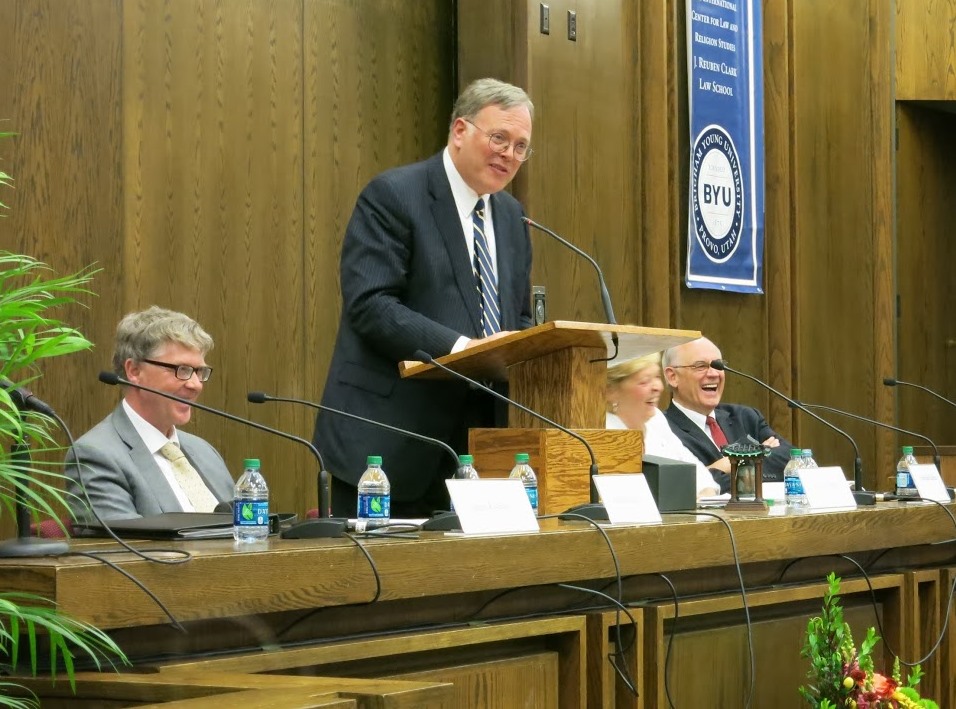
Delegates, invited guests, and listeners worldwide via live webcast of the opening session of the 20th Annual International Law and Religion Symposium were privileged to hear compelling and provocative keynote addresses by Judge Françoise Tulkens, and Professor Malcolm Evans OBE, who spoke to the topic Religion and Human Rights.
Those assembled in the Moot Court of the J. Reuben Clark Law School at Brigham Young University, as well as those listening in via live webcast, were first welcome by Law School Dean James R. Rasband, after which the speakers were introduced by W. Cole Durham, Jr., Director of the Law School's Internation Center for Law and Religion Studies, the Symposium's sponsoring organization, who also presented the Center's Distinguished Service Award... more
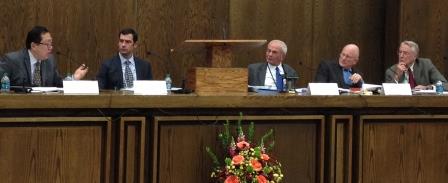
Joseph Hepworth, Brent Andrus, and Donlu Thayer reporting
This first plenary session of the 20th Annual International Law and Religion Symposium addressed "Religious and Philosophical Bases of Human Rights." The session opened with an introduction by Brett G. Scharffs, BYU Law School Associate Dean and International Center for Law and Religion Studies Associate Director, followed by welcomes from Law School Dean James R. Rasband and Brigham Young University President Cecil O. Samuelson. Guest moderator Zachary R. Calo, Professor of Law, Valparaiso University School of Law, superintended... more

Jordan Pendergrass and Joseph Hepworth reporting
The Symposium's second plenary session, entitled "Judicial Perspectives on Religion and Human Rights," was a lighting round of questions and answers. The session was moderated by J. Clifford Wallace, Chief Judge Emeritus, United States Court of Appeals for the Ninth Circuit.
Judge Wallace introduced the session as a conversation between judges and explained that he had not given his colleagues advance notice of what he might ask them. The panelists... more

Joseph Hepworth reporting
Moderator: Elizabeth A. Clark
Speakers: Renáta Uitz, Mark Hill, Ian Linden, Anthony Gill
Renáta Uitz, Professor and Chair, Comparative Law Program, Central European University
Professor Uitz described the clash between freedom of religion and other human rights. She suggested that it might be useful to take a second look at the picture. We arrived at the same-sex marriage debate after a decades-long transformation of family law. For example, the status of children born out of wedlock was a development... more
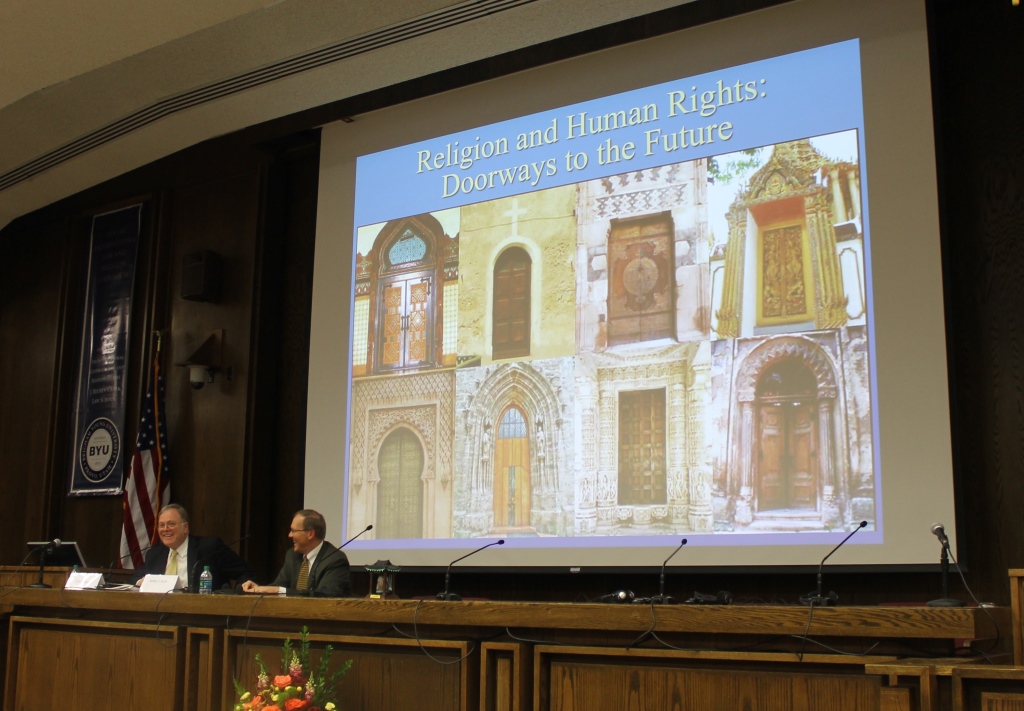
To bring the 20th Annual International Law and Religion Symposium to a close, Professor Cole Durham invited eight Symposium delegates
- Rana R. Arna’out
- Anna Nardini
- Shiferaw Teklemariam
- Alejandro Ordoñez Maldonado
- Hermen Shastri
- Volodymyr Zagoldnyi
- David Little,
- Rakesh Hamal
to join him in making summary comments. The delegates expressed their appreciation for the organizers of the conference and the gracious reception from volunteers and organizers alike. They also reflected on insights and inspiring concepts from the symposium. ... more
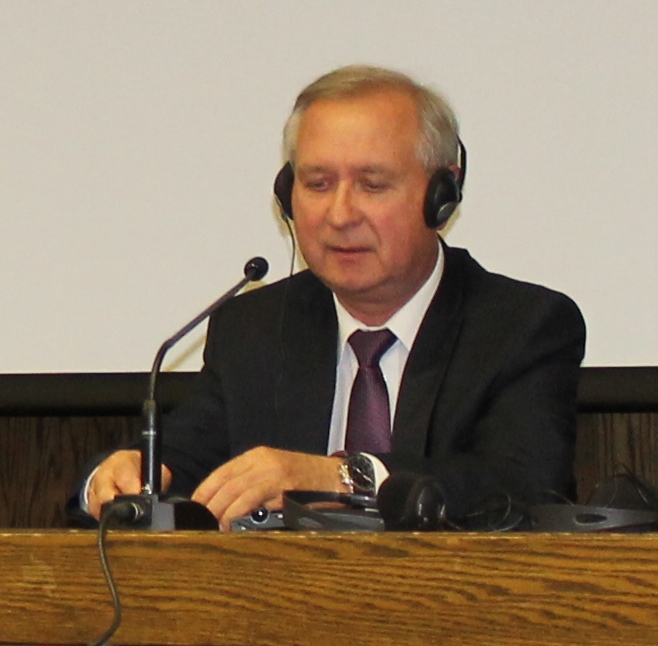
Joseph Hepworth reporting
Moderator: Thomas B. Griffith, Circuit Judge, United States Court of Appeals for the D.C. Circuit
Volodymyr Zagoldnyi, Judge, Supreme Court of Ukraine
Judge Zagoldnyi began his presentation by observing that conflict between religions is quite natural in the process of globalization. In Ukraine, Article 35 of the Constitution protects religious freedom. Each person has freedom of thought, including the right to change religion. The state interferes with religion only as necessary to protect public order. Religious organizations in Ukraine... more
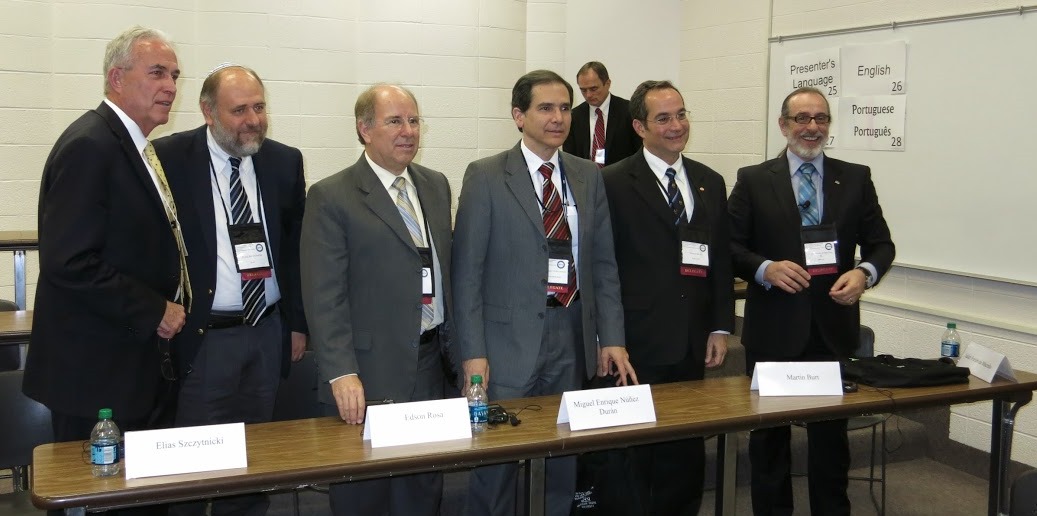
Gaylee Coverston reporting
Moderator: Stanley Martineau
The Latin America: Community Leaders session brought together a panel of community leaders from Peru, Brazil, Paraguay, and the Dominican Republic.
The session began with Elias Szczytnicki of Peru, the Secretary General and Regional Director of Religions for Peace in Latin America and the Caribbean. This great community advocate created a clear picture... more
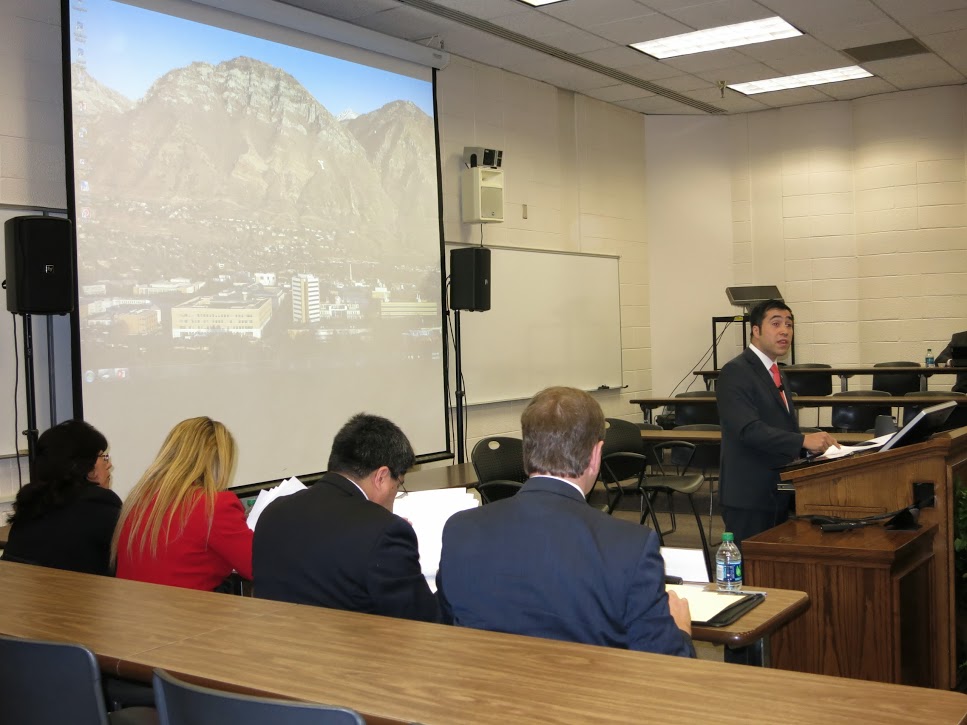
Moderator: Patrick J. Thurston
Speakers:
Gonzalo Guerrero, Director, Chile Religious Affairs Office
Maria Esperanza Adrianzen Olivos, Director of Interfaith Affairs, Ministry of Justice and Human Rights, Peru
Ximena Guzmán, Director of the Department of Entry Processing, National Directorate of Immigration
Eliseo Rosales Avalos, Director General, Federal Heritage Administration (INDAABIN), Mexico
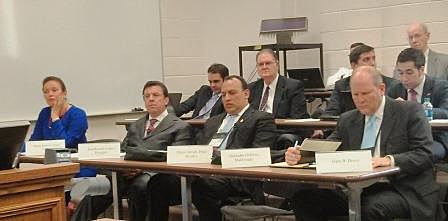
Gaylee Coverston reporting
Moderator: Gary B. Doxey
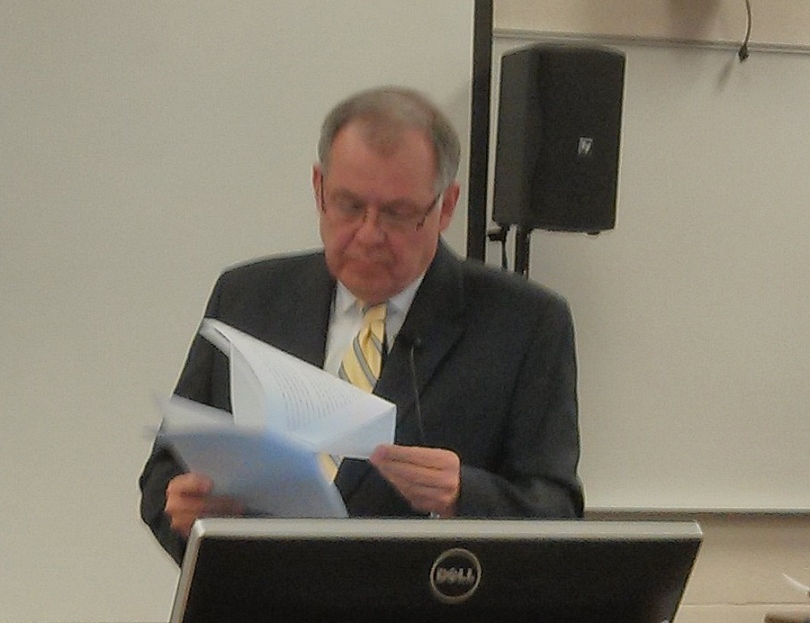 The distinguished Attorney General of Columbia, Alejandro Ordoñez Maldonado, opened the session with a discussion of the importance of social and political debate to improve the quality of freedom of religion and conscience. According to Article 19 of Colombia's Constitution, a person does not have to act contrary to their conscience. True freedom must allow for action or inaction in accordance with one's own personal beliefs. Mr Ordoñez concluded with a personal experience dealing with the issue... more
The distinguished Attorney General of Columbia, Alejandro Ordoñez Maldonado, opened the session with a discussion of the importance of social and political debate to improve the quality of freedom of religion and conscience. According to Article 19 of Colombia's Constitution, a person does not have to act contrary to their conscience. True freedom must allow for action or inaction in accordance with one's own personal beliefs. Mr Ordoñez concluded with a personal experience dealing with the issue... more
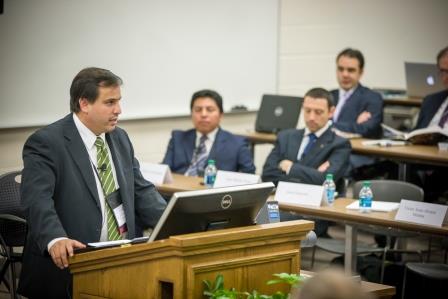
Moderator: Scott Isaacson
Click names to view PowerPoint presenations (in Spanish):
Marcos González Sánchez, Professor of Ecclesiastical Law, Universidad Autónoma de Madrid, Spain
Juan Martin Vives, Secretary of Student Management, Universida Adventista del Plata, Argentina
Efrén Chávez Hernández, Professor, Legal Research Institute, National Autonomous University of Mexico
Victor Jesus Alvarez Medina, Director General, Administrative Studies Center, Venezuela
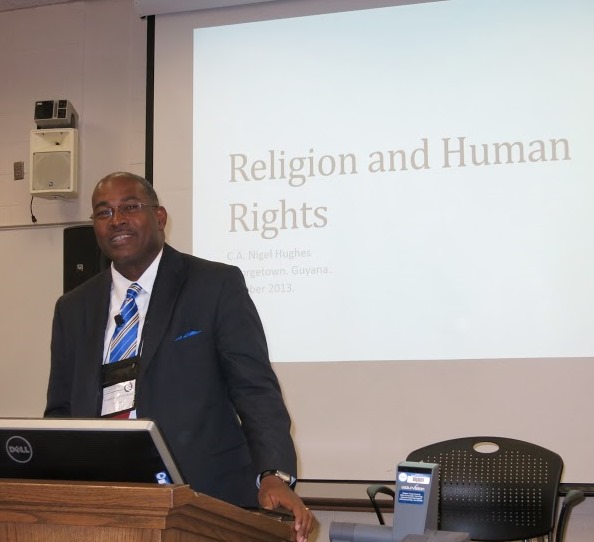
Moderator: Richard "Dic" Johnson
Speakers:
Luis Pedro del Valle, Partner, Arias & Muñoz, Guatemala
Moisés Arata Solís, Professor, University of Lima, San Martín de Porres and San Ignacio de Loyola, Peru
Clarence Antony Nigel Hughes, Attorney at Law, Hughes, Fields & Stoby, Guyana
Yoel Rivas, Yoel Rivas Martinez Law Firm, Venezuela

Brent Andrus reporting
Moderator: David Kirkham
Shiferaw Teklemariam - Minister of Federal Affairs, Ethiopia
Ethiopia has a long history of religious tolerance. Christianity is the largest faith, followed by Islam at one third of the population. Christianity and Islam coexist without major problems. Religious protection has been provided by the constitution for the past twenty two years. No one religion is favored and freedom of worship is guaranteed. New legislation has been proposed that provides for a more straightforward and manageable... more
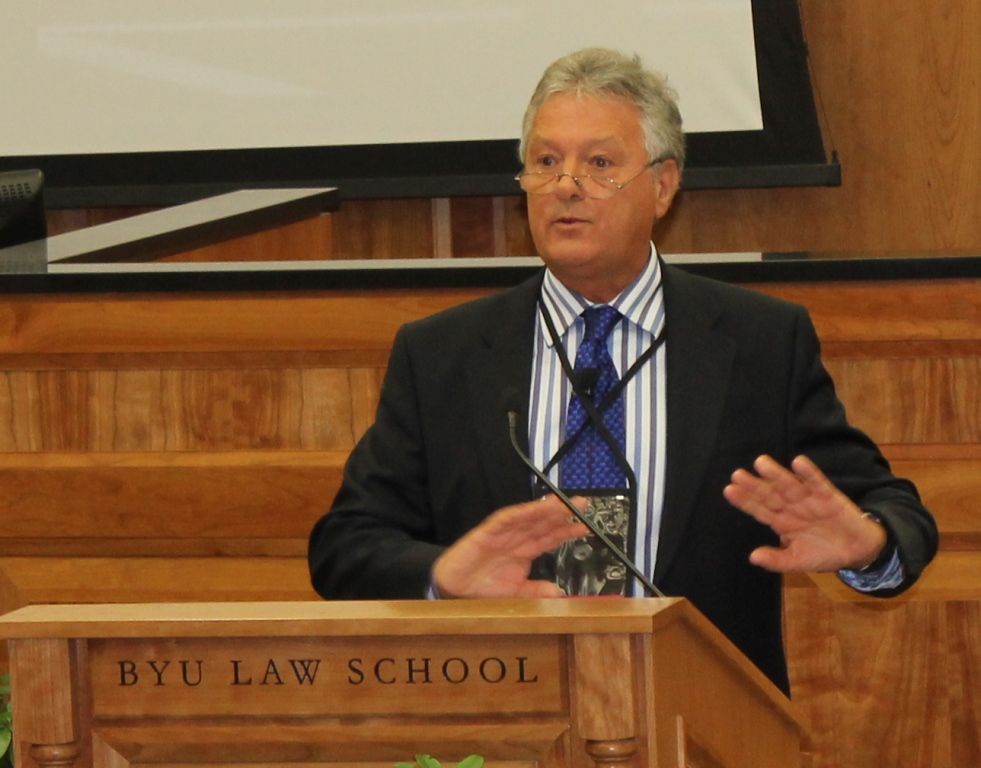
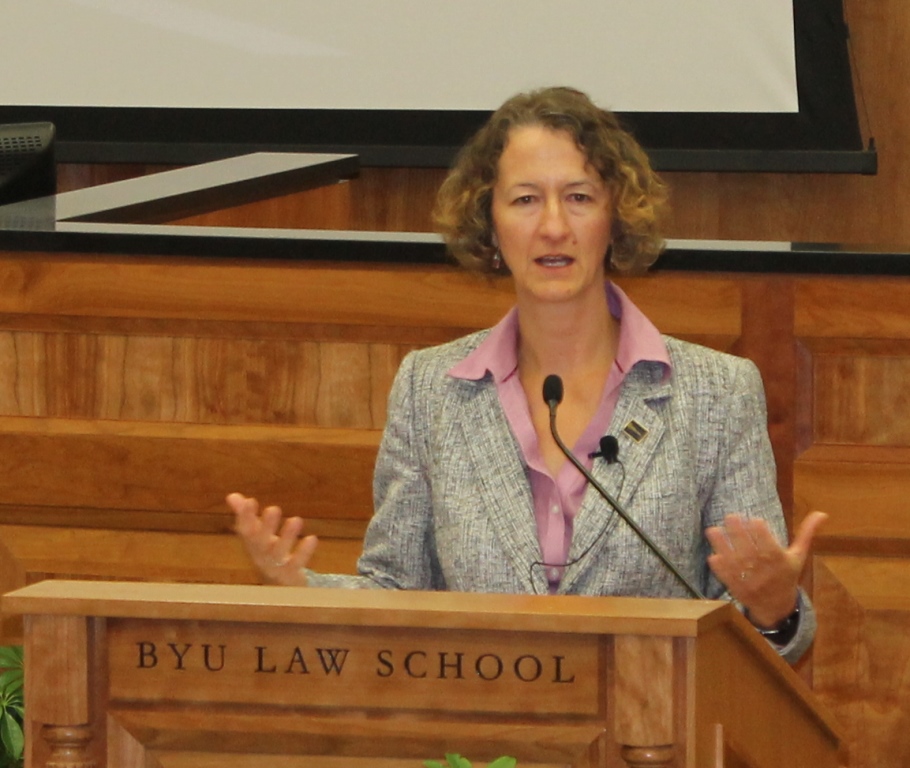
Moderator: David Kirkham
Speakers:
Don Horrocks, Evangelical Alliance UK
Janet Ep Buckingham, Associate Professor of Political Studies and History; Director, Laurentian Leadership Centre
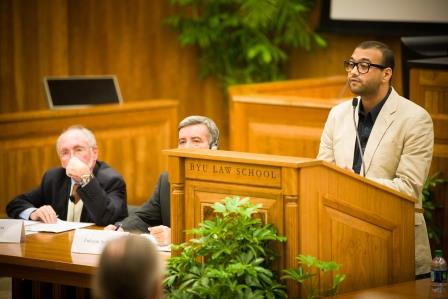
Moderator: Fred W. Alexgard
Speakers:
Mohamed Abdelaal, Assistant Professor of Constitutional and Administrative Law, Alexandria University Faculty of Law
Erdogan Arslan, Vice President, Turkey Yozgat City Platform
Michel André Touma, Assistant Editor-in-Chief, L'Orient-Le Jour
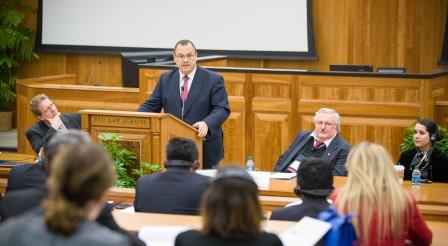
Moderator: John R. Rosenberg
Speakers:
Marco Frenschkowski, Prof. Dr., University of Leipzig, Germany
José Ferrer Sánchez, Professor, Peace and Conflicts Institute, Granada University, Spain
Eugenia Paola Carmona Diaz de Leon, Foundation of the Parliamentary Group for the National Action Party of the House of Representatives, Mexico
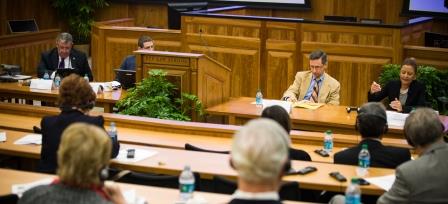
Jordan Pendergrass reporting
Moderator: Mark Choate
Speakers: Claudio Mario Betti, Anna Nardini, and Andrea Pin.
The session dedicated to Italy began with the furthering of a common Symposium theme: the language of the human rights framework. Claudio Mario Betti, Assistant to the President, Community of Sant’Egidio, made it clear that a small "s" makes a big difference; a discussion of “religion and human rights” is often overly theoretical while a discussion of "religions and human rights" typically deals with concrete persons and things. During... more
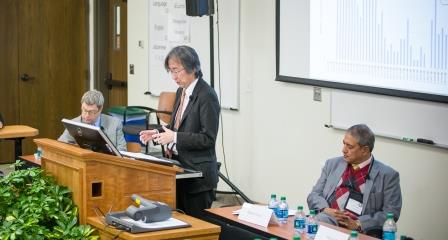
Moderator: Brett G. Scharffs
Speakers:
Makoto Ida, Professor, Keio University Law School, Japan
Rakesh Hamal, Executive Director, GP Koirala Foundation for Democracy, Peace & Development; Chairman, National Rehabilitation Society for the Disabled (NGO), Nepal
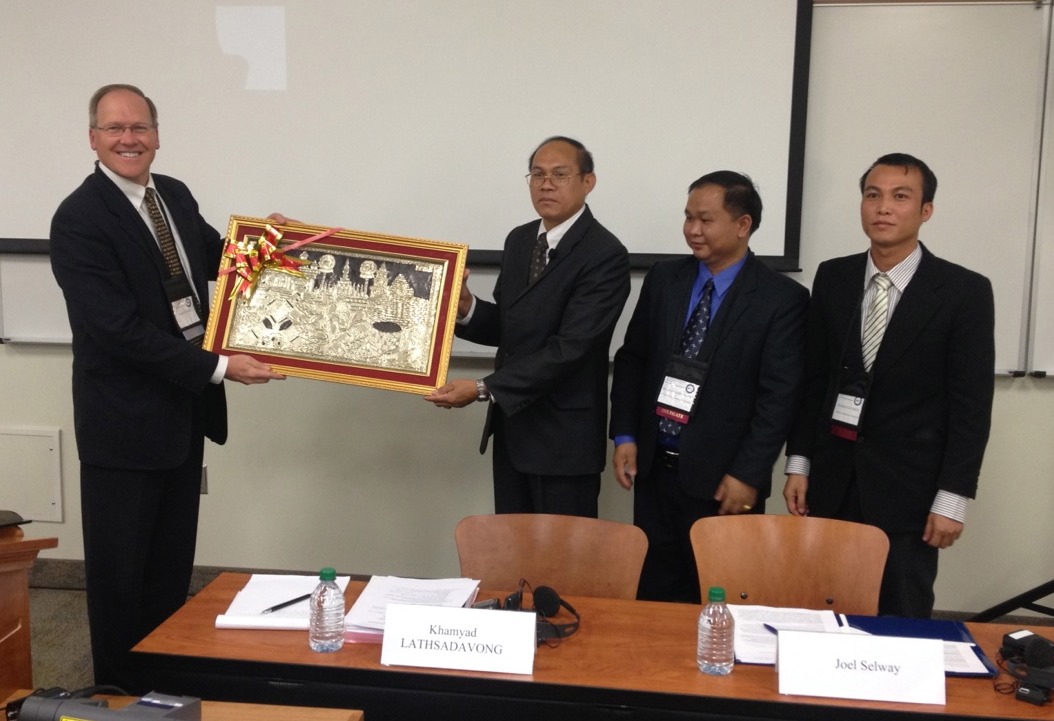
Lao Delegates with Robert T. Smith
Jordan Pendergrass reporting
During one of the Symposium’s first breakout sessions, which was moderated by Joel S. Selway, Assistant Professor, Political Science, Brigham Young University, the Lao People’s Democratic Republic was represented by
- Bounna PHATHOUMMAVONG, Director General, Department of Home Affairs of Vientiane Capital,
- Houmphan XAYASITH, Staff, Ethnic and Religious Affairs Department, Ministry of Home Affairs, and
- Khamyad LATHSADAVONG, Director of Religious Division
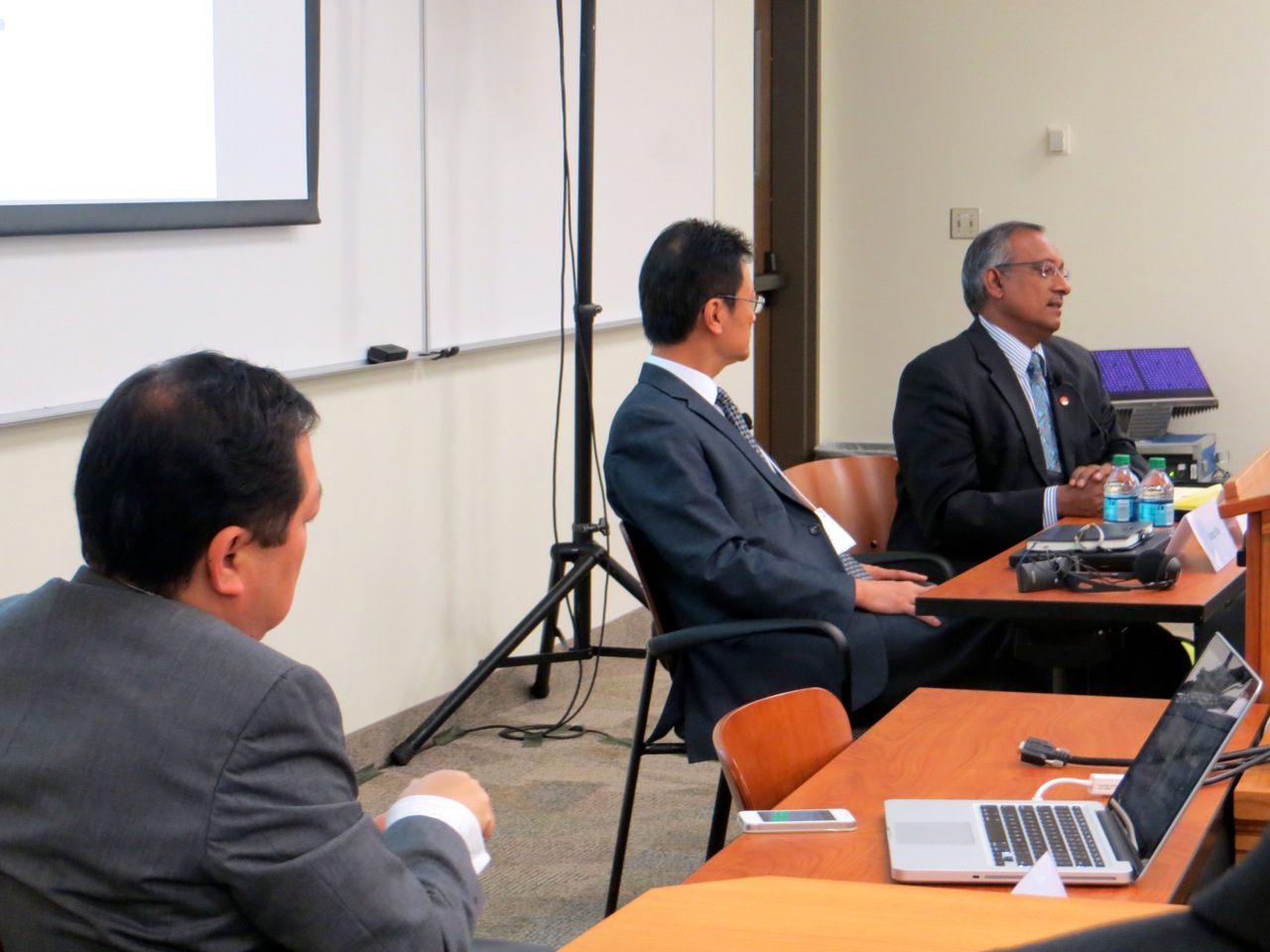
Moderator: George Mak
Speakers:
Hermen Shastri, General Secretary, Council of Inter-Religious Harmony, Malaysia
Andrew Khoo, Co-Chair, Human Rights Council, Malaysia
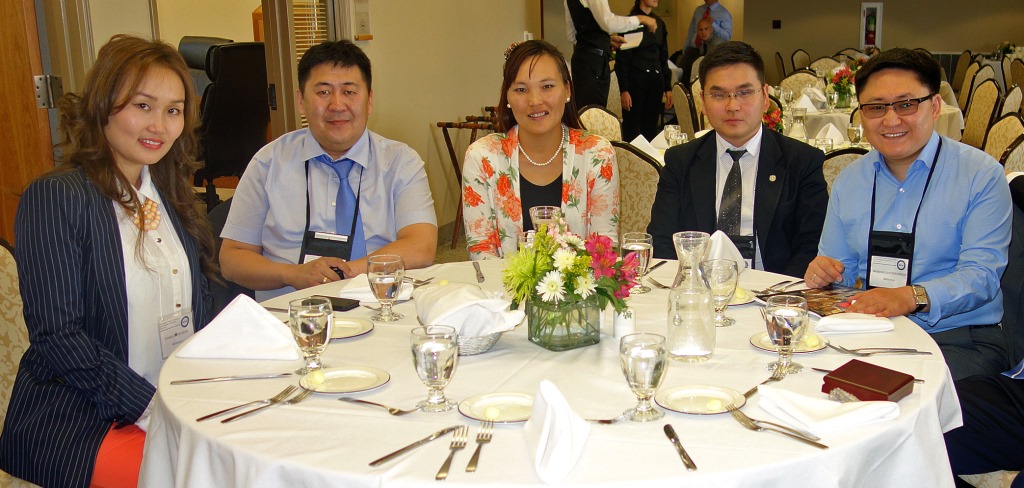
Joseph Hepworth reporting
Moderator: Richard Page
Speakers:
- Bukhchuluun ENKHBOLD
Secretary, City Council of Ulaanbaatar - Amarjargal BAT-OCHIR
Officer, Coordinating Council for Crime and Prevention of Ulaanbaatar, Khural City Government - Myatavdorj MUNKHBAT
Vice-Director, Immigration Agency of Mongolia
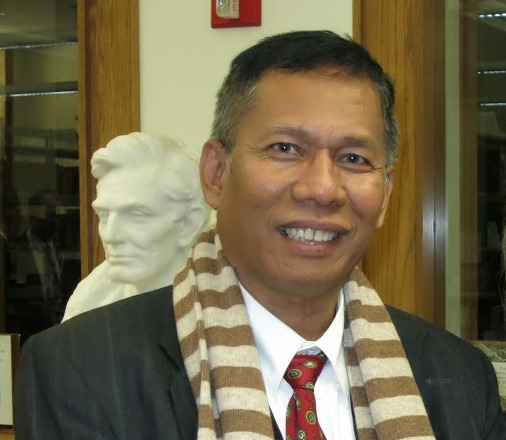
Moderator: Douglas McAllister
Speaker: Quivido T. Oregines, Professor, Xavier University
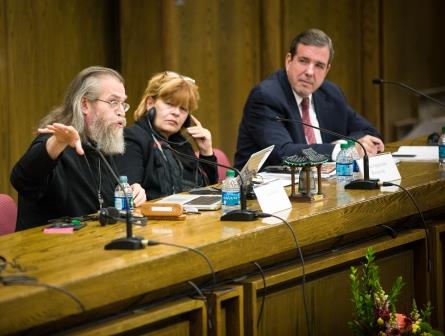
Joseph Hepworth reporting
Moderator: Michael L. Jensen
Speakers:
Yakov Krotov and Zorica Angelovsska-Kovasevikj
Yakov Krotov, Priest, Ukrainian Autocephalous Orthodox Church Reunited, Russia
The lack of religious freedom is in the center of public discussion in Russia. Russia can be characterized as a state without law. If you are a member of the Russian ruling elite (about 25% of the population), you have the right to violate some of the laws, depending on your status. The Russian President can violate all laws. There is a gap... more
